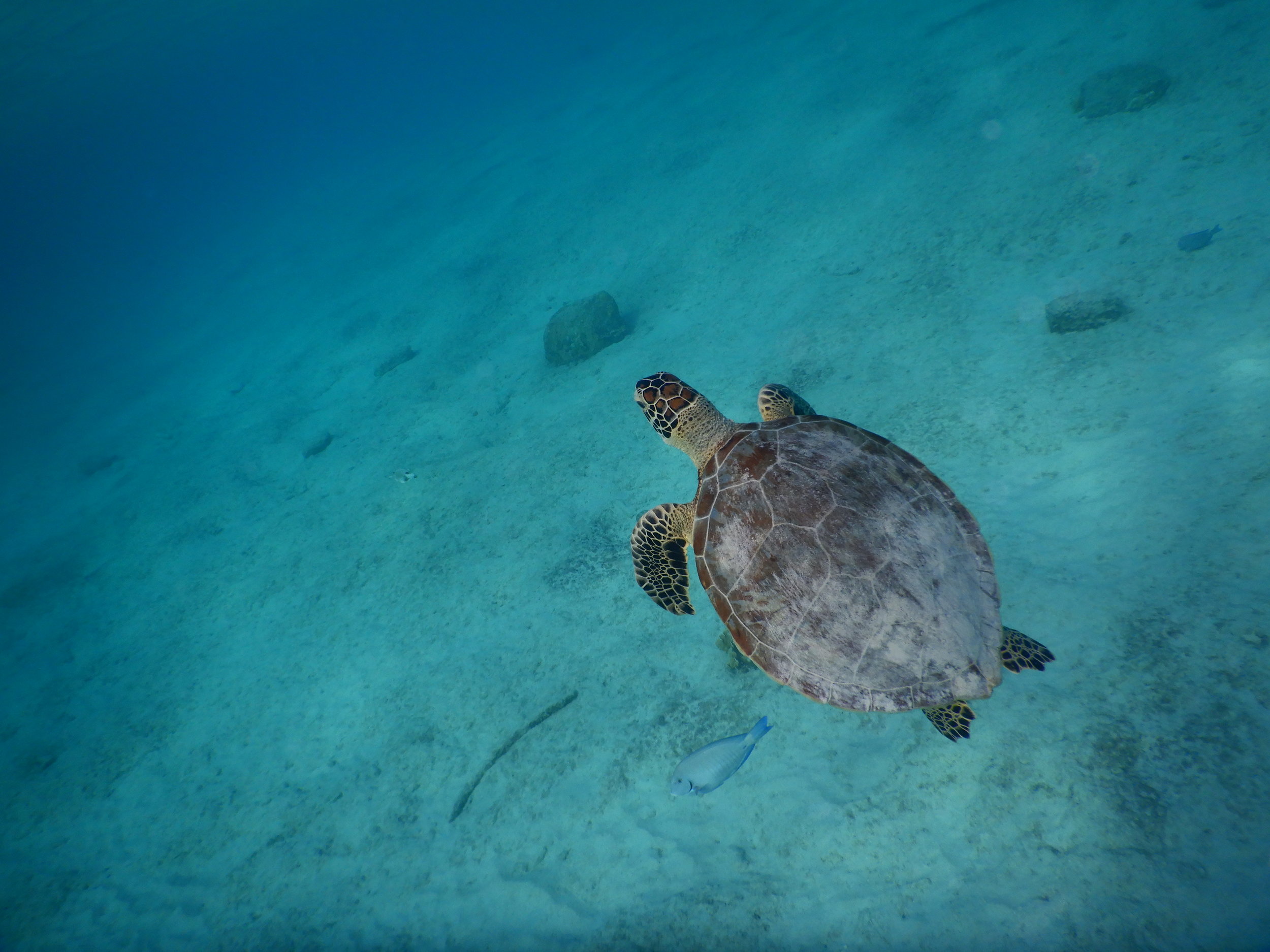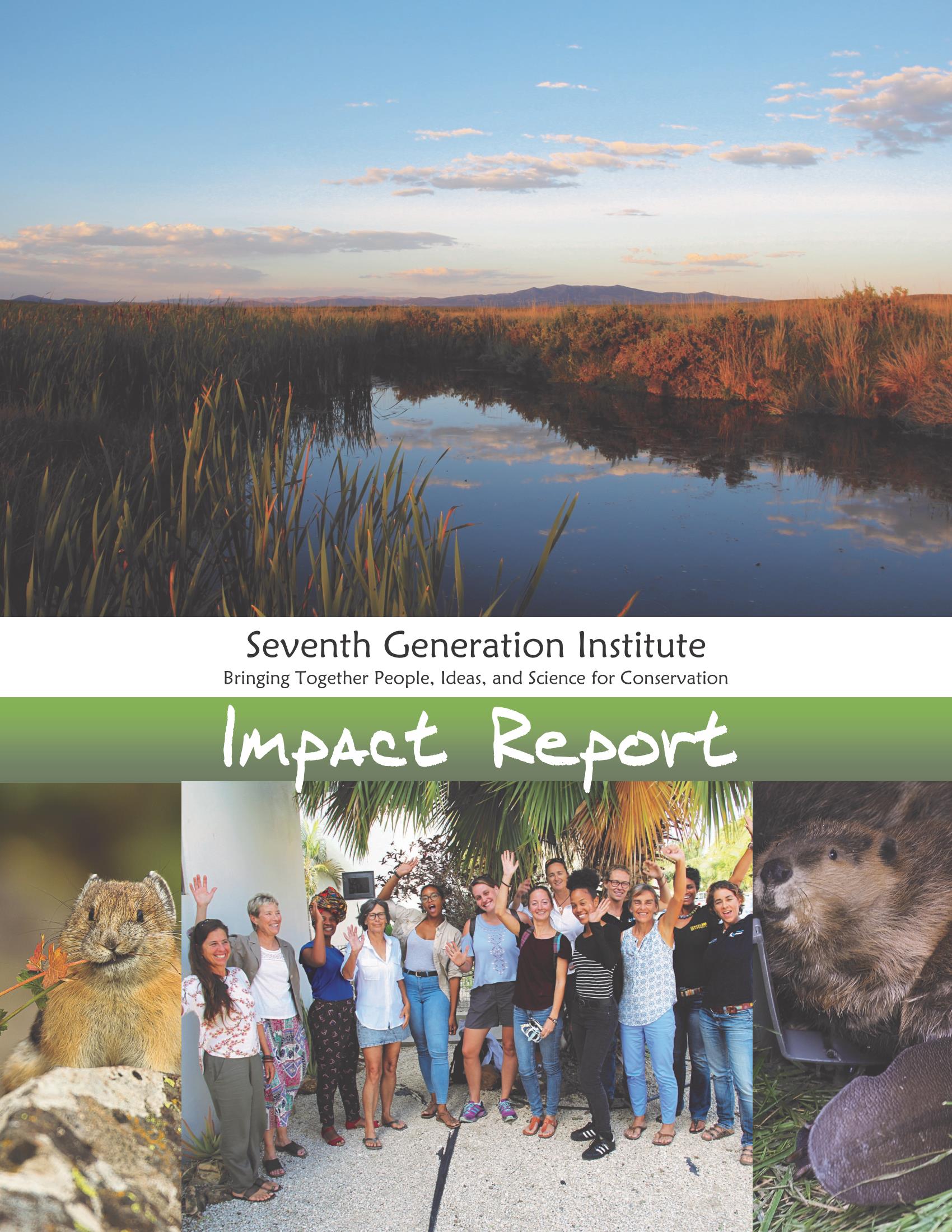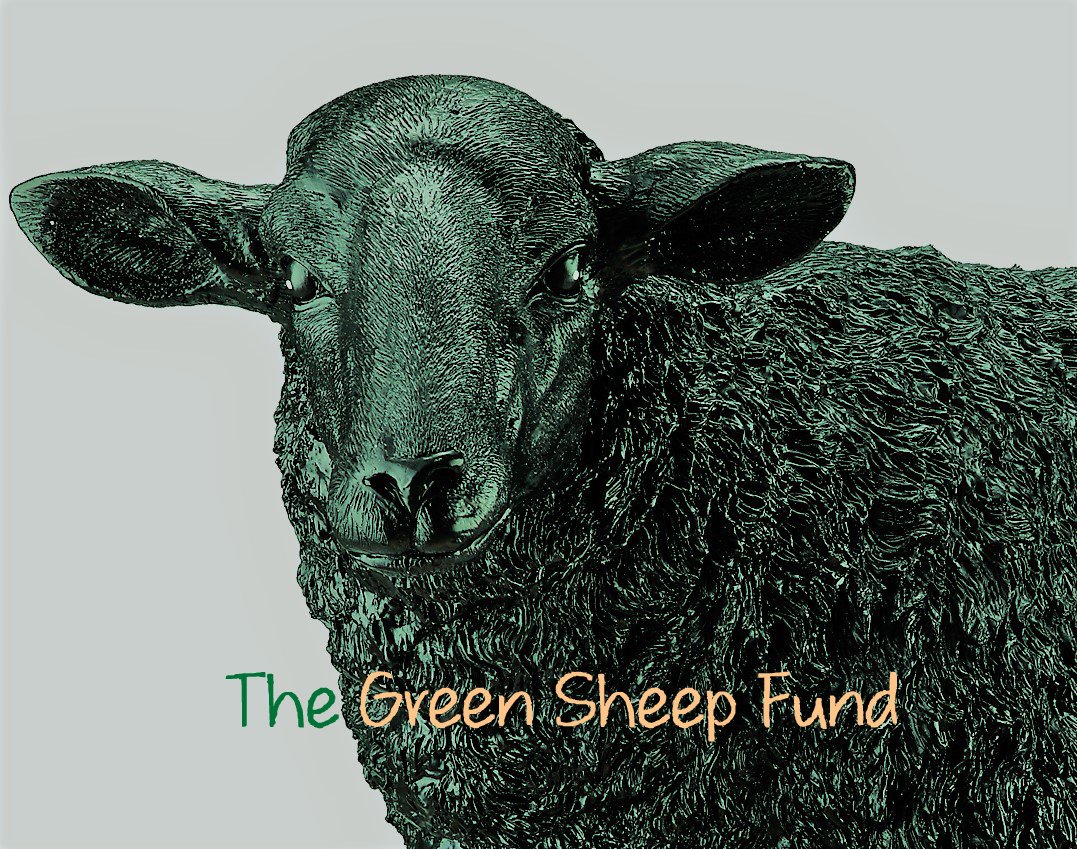A Fresh Approach to Conservation
Our Mission
Seventh Generation Institute's mission is to build a vibrant future for people and nature through conserving, restoring and promoting responsible use of resources.
Our Strategic Vision
Healthy inspiring nature thrives around the globe for future generations of people and all living things.
Our Values
The Institute's approach to achieving our mission is based in science, collaboration and impact.
The Institute is nonpartisan and avoids litigation, protest and confrontational positions on issues.
The Institute plans to remain a relatively small organization with the flexibility to innovate, to develop and test new techniques in search of greater impact.
Our Approach
How do we work to achieve our mission?
New School Conservation
There are many ways to work toward conservation. The Institute calls our approach "New School" conservation.
New School conservation incorporates applied sciences, innovation, strategic collaboration, human behavior and common sense, because each of these alone is “necessary but not sufficient” for conservation success. All are needed in an integrated manner for successful conservation. Many past conservation efforts missed one or more of these elements and many present efforts continue to do so, which has led to less-than-optimal results, frustration or outright failure.
The Institute does not participate in the "old school environmentalism" characterized by litigation, polarized discussions, pontificating, and lack of true collaboration. If old school worked, we wouldn't be still arguing over the same resource management issues that first came up in the 1970s.
Certainly we need all the tools in the toolbox. There is a time and place for litigation for example. But the Institute believes that litigation is a significantly overused tool in the conservation field. Litigation and other adversarial approaches have the goal that one side wins and the other loses. The first problem is that there are rarely just two sides - usually, there are many. The second problem is no one is content to remain the loser. So an issue may be fought over for years or may be just buried. Temporarily. These winner-loser outcomes are not sustainable. And isn't that ironic, when "sustainability" is a professed goal everywhere in conservation?
How is New School Conservation Different?
Seventh Generation Institute diversifies its income stream via donations, partnering with appropriate businesses, occasional grants, and income generated from our services. This diversification is key to running a steady organization, because politics and the economy are constantly changing.
Rather than focus on one niche - such as saving birds or redwoods - the Institute builds programs around needs for which we can have the greatest impact, or where our approach is the best fit, or gaps in conservation effort and resources. Thus we have a variety of programs, but our approach is consistent - New School conservation.
Our work is based in strong science but incorporates ideas from business, economics and other fields. We review the existing scientific knowledge through literature or expert consultations for every project before we take it on. No point in reinventing the wheel, or even worse, misguided efforts that waste scarce resources and time.
We eschew "preaching to the choir." It is easy to communicate with those that already agree with you - this is the comfort zone and many organizations never go beyond it. But what happens when we reach out to new partners–especially those that aren’t traditional conservationists?
We learn a lot.
Developing new partners from among those that traditionally have not been interested in conservation, or are alienated by past adversarial experiences, is more challenging but brings far larger conservation results. We focus on "best communication practices" We listen with open minds. We ask them to do the same. Everyone learns.
We are highly strategic in our use of volunteers. Volunteer programs can be "feel good" and are often considered cheap labor. But many volunteers don't get much done, while costing high levels of maintenance, staff time for training, and elevated insurance. We seek the 20% of volunteers that get something done.
We are highly strategic in our partnerships. Collaboration consumes time, so we want to get the most bang for our hour. We rarely work with other organizations that are doing stream restoration, for example, because there is little net gain for either organization. Instead, we focus on individuals, agencies and organizations that bring expertise or resources to our projects that the Institute doesn't have - and vice versa, that we bring something needed to their work.
We are highly strategic in our use of funds, putting the greatest possible amount of funds into conservation work. We do not maintain offices, but rather "locations.” Whether staff, volunteers, or contractors, everyone works from home. We do not throw parties for our donors; however we are delighted when donors want to visit project sites and see the impact of their gifts. Or even participate.
We categorically reject the evaluation of nonprofits based on overhead ratios. Many experts have described overhead ratios as a false metric, leading to the loss of nonprofit staff, resources and technology and outright falsification of records. In no other field of endeavor are staff and organizations asked to do the critical work of society while starving for resources.
We do more on-the-ground work. It is more difficult and more expensive, but has greater impact, lends credibility to our workshops and helps move us toward our goals of new partnerships, new tools and new information.
We take on difficult projects and risk trying new methods, bringing a "can-do" attitude to all of our work. Sometimes these are issues that other organizations have given up on. Sometimes trying to build new partnerships doesn't work. Sometimes even the best volunteers flake out. Sometimes restoration work takes longer to complete than expected or gets hit with big weather events mess up our "best laid plans." We expect to fail sometimes - it is an important part of the learning process. Some funders and donors are uncomfortable with this. But this is precisely how innovation, learning, creating, progress, ingenuity - all those words we humans adore - happen. Ingenuity is something that our society prides itself on. We walk the talk.
In sum, innovation is more than a buzzword at the Institute. We put innovation into sturdy boots and go out into the world listening to people, getting our hands dirty, wading into beaver ponds, whatever it takes.
““We cannot solve our problems with the same thinking we used when we created them.”
Impact
Looking for good news about good work?
Download the Institute’s impact report and feel good about conservation.
Featured Donors
The Green Sheep Fund…
… because people are the engine of good works
What a great name for a family charitable fund! Not quite the black sheep, but better, the green sheep.
The Green Sheep Fund will be funding part of our 2023 expedition into the Pecos Wilderness to monitor climate and pika. We are so honored and grateful for their support.
Thank you, Green Sheep Fund.
Nonprofit Status and Documents
Seventh Generation Institute is a nonprofit organization under IRS code 501(c)3. Established in 2006, the Institute is registered in New Mexico and Idaho. Our EIN is 20-5483251.
All contributions are tax deductible to the extent allowed by law and will receive a thank you letter that expresses our gratitude and serves to document your charitable contribution.
Institute documents are found below.
State of Idaho Certificate of Registration
Please note that Seventh Generation Institute has no affiliation with Seventh Generation Corporation, the maker of household cleaning products, diapers, etc.
How the Institute Got Its Name
We are often asked where the name Seventh Generation Institute came from. It is from an early and visionary saying of the Iroquois that succinctly describes why sustainability and conservation matter:
“In every deliberation, we must consider the impact of our decisions on the next seven generations.”











